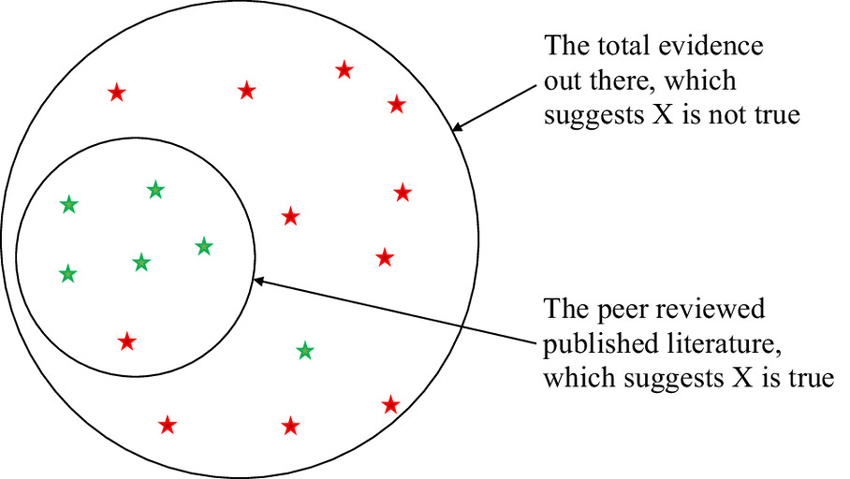A NEW paper finds that scientists are more likely to censor themselves and one-another than to be deliberately censored by non-scientists, and that such scientific censorship may be on the rise.
The paper, Prosocial motives underlie scientific censorship by scientists: A perspective and research agenda, was published this week in Proceedings of the National Academy of Sciences.
Musa al-Gharbi, a lead author on the paper, said, “Censorship is often discussed in terms of outsiders with bad motives trying to suppress the truth. However, the best available data suggests that scientific censorship, while often damaging in practice, is generally well-intentioned and carried out by scientists themselves.”
The study found that most modern scientific censorship comes not from institutional authorities exerting deliberate control over the flow of information, but from scientists’ own motivations related to protecting themselves or others from perceived harm.
The authors of the study suggest that scientists may attempt to suppress findings out of concern for potential harm to individuals or groups, particularly groups that have traditionally been marginalized, and an expanding definition of what constitutes harm.
Laura Lindenfeld, executive director of the Alda Center for Communicating Science, said, “This paper thoughtfully examines a question that is increasingly important as trust in scientists and other experts continues to decline.”
In more detail
The researchers write, “Science is among humanity’s greatest achievements, yet scientific censorship is rarely studied empirically. We explore the social, psychological, and institutional causes and consequences of scientific censorship (defined as actions aimed at obstructing particular scientific ideas from reaching an audience for reasons other than low scientific quality).
“Popular narratives suggest that scientific censorship is driven by authoritarian officials with dark motives, such as dogmatism and intolerance. Our analysis suggests that scientific censorship is often driven by scientists, who are primarily motivated by self-protection, benevolence toward peer scholars, and prosocial concerns for the well-being of human social groups.”
They found that “People disproportionately search for, share, and remember (even falsely) preferred information. In addition, people are selectively sceptical of discordant information and more negatively evaluate scientific methods when results are undesirable. Similar patterns occur among scientists. For example, peer reviewers evaluate research more favourably when findings support their prior beliefs, theoretical orientations, and political views. Scientific papers describe ideological outgroup members more negatively than ingroup members.”
They said, “Censorship research typically explores dark psychological underpinnings such as intolerance, authoritarianism, dogmatism, rigidity, and extremism. Authoritarianism, on the political right and left, is associated with censoriousness, and censorship is often attributed to desires for power and authority. Although citizens in liberal democracies support free speech in the abstract, they often support censorship in ideologically challenging cases. Censorship may also signal in-group allegiances, as members denounce others to gain status and affirm their group’s superiority.
“But censorship can be prosocially motivated. Censorious scholars often worry that research may be appropriated by malevolent actors to support harmful policies and attitudes. Both scholars and laypersons report that some scholarship is too dangerous to pursue, and much contemporary scientific censorship aims to protect vulnerable groups. Perceived harmfulness of information increases censoriousness among the public, harm concerns are a central focus of content moderation on social media, and the more people overestimate harmful reactions to science, the more they support scientific censorship.
Lead author, Cory J. Clark from University of Pennsylvania, concluded, “Although many members of our research team are concerned about growing censoriousness in science, there is great diversity of opinion among us about whether and where scholars should ‘draw the line’ on inquiry. We all agree, however, that the scientific community would be better situated to resolve these debates, if—instead of arguing in circles based on conflicting intuitions—we spent our time collecting relevant data”
The research team included scholars from 30 institutions including Stony Brook University, including the University of Pennsylvania, Rutgers, the Foundation for Individual Rights and Expression, Heterodox Academy, and the University of British Columbia.

